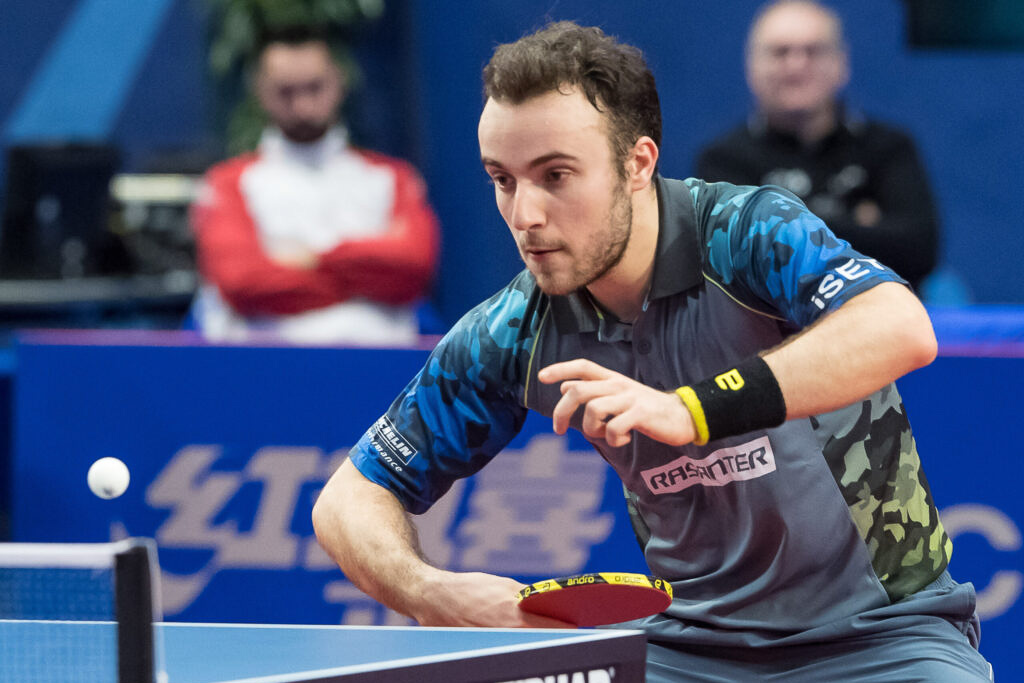Oliver Alke: Discovering young talent early
Portrait of Oliver Alke, a coach for the compass Foundation, who is working with young talents like Lleyton Ullmann and Eduard Kardon and believes in early support and tailored training.
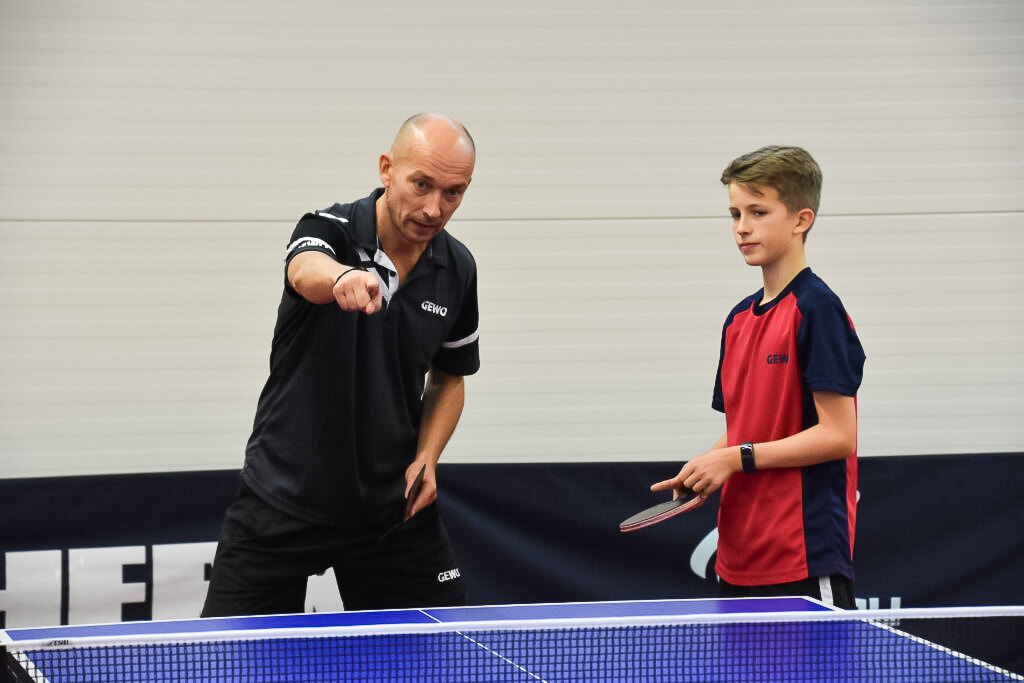
none
Oliver Alke and Lleyton Ullmann at the table. Photo: Jens Fellke
Since 01.01.2019, Oliver ‘Olli’ Alke has been working as a full-time coach for the compass Foundation. After helping Lleyton Ullmann to the 1st place in his age group and even to the top 3 of the one year older age group in Germany, a very young talent named Eduard Kardon from Schleswig-Holstein, born in 2014, caught his attention.
“I got in touch with the compass Foundation following their interest in Lleyton, with whom I had been working closely for several years at that point,” says Olli over the phone from Hamburg. “I liked the concept of compass, their wanting to discover young talents for early support, to give them the opportunity to maximise their potential with targeted training. The idea that additional initiatives by a foundation, in collaboration with existing organisations and environments of talent, could be a way to develop a future world class player was compelling. So, when I got the offer to contribute, my gut told me that I really wanted to do this full time.”
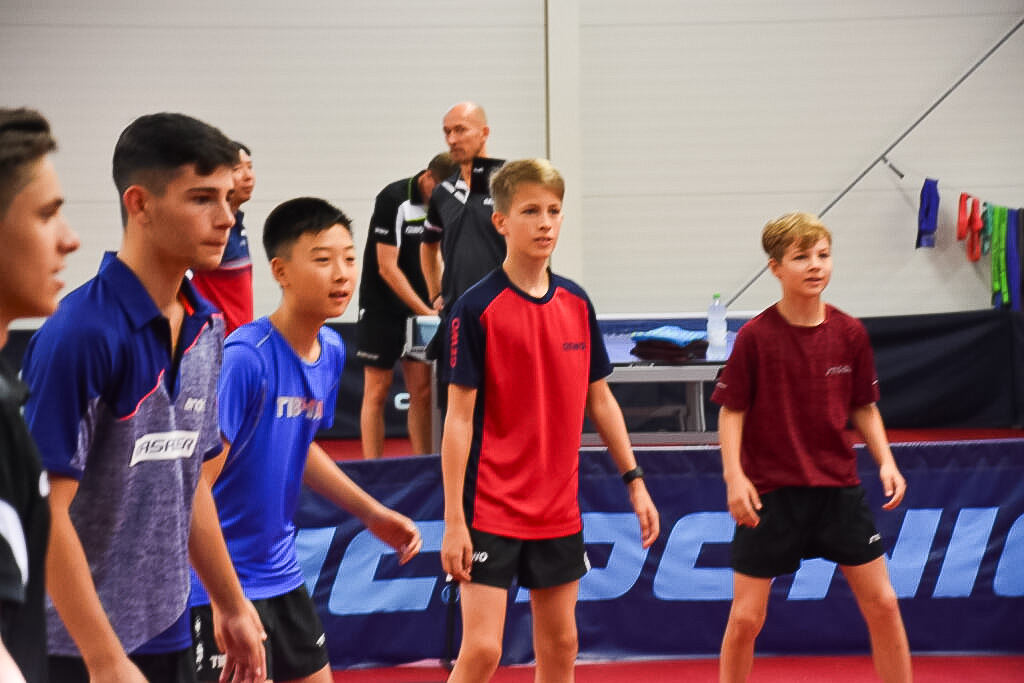
none
Lleyton Ullmann (in red) warming up during a week of training in Ochsenhausen between two other compass players, Kevin Fu (3rd from right) and David Björkryd (far right). Photo: Jens Fellke
First protégé moves
Alke’s first protégé, team compass player Lleyton Ullmann, recently left Hamburg to live and train at the German Table Tennis Center (DTTZ) in Düsseldorf. Lleyton goes home every other weekend to see his family and of course, Olli will do training sessions with him then. He will also remain Lleyton’s personal coach, visiting him regularly in Düsseldorf and coaching him at competitions. However, their daily training together is over. From now on, what happens in Düsseldorf will have a greater impact on Lleyton’s development than what happens in Hamburg.
“It’s the perfect time for Lleyton to go to Düsseldorf. He is now 14 years old and has to invest more time in school, which would have negatively affected his training volumes if he had stayed in Hamburg. His playing level is now so high that it is also becoming more and more difficult to constantly find adequate training partners for him here in Hamburg. The other members of the training group here don’t have matching high and professional goals either, which would not contribute to his motivation in a positive way.”
Group dynamics
In Düsseldorf, schoolwork has little impact on his training scopes as Lleyton lives literally 50 metres from the hall and can train whenever he wants. He’s surrounded by players of different ages and at different stages of their careers, but all of them are striving to be No. 1. Becoming part of such a group dynamic with many good players will be highly beneficial for Lleyton’s development.
Win-win
Before Lleyton’s move, working with him was a huge part of Oliver Alke’s daily agenda. Now there is more time for the new and young talents. The youngest of them is Eduard ‘Eddie’ Kardon, born in 2014.
Eddie is a perfect example of where compass can be helpful in developing promising talent. If the external conditions are right and the parents agree, compass can offer them more high quality training and games than the club or state coaches, because their profession is to help a child’s progress. They can focus on individual, very young players who are almost beginners. “In the end it’s a win-win situation – the national association gets a better and more competitive player, as well as the youth national team and hopefully at some point the men’s national team,” says Olli.
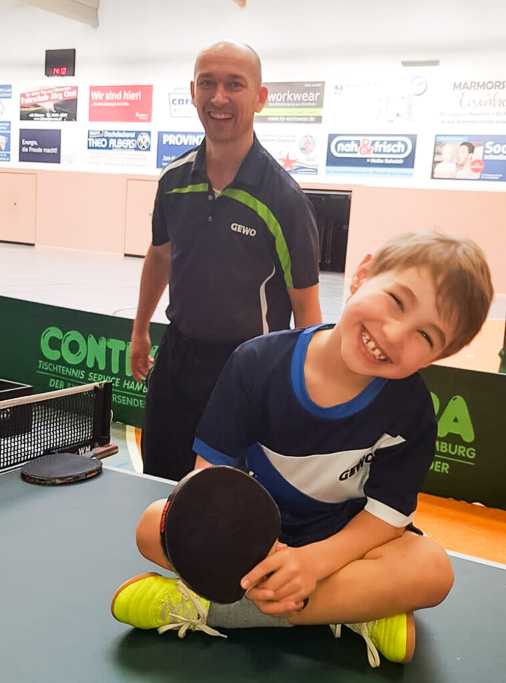
none
Eduard ‘Eddie’ Kardon
“The tip-off came from Mirsad Fazlic, the state coach of Schleswig-Holstein. Eddie was the ‘little brother’ sitting on the bench watching his big sister at the base training and his interest in playing table tennis was noticed by Mirsad. For him, it was clear that Eddie could only get individual training because as an almost beginner he was much worse than all the others in the base so Mirsad organised this for Eddie. That’s how I came for a few test sessions and realised, as did Mirsad, that Eddie had something special and we should take care of him more intensively, despite or even because of his young age.”
Initially, Olli also played with Eddie one time per week but since a few months it has become four times per week after consultation with Mirsad, only possible because the two live not far from each other, much closer than Mirsad.
“There were many things I still had to learn in the beginning,” Olli continued. “How long could I do a training session with him? How do I keep fun in the game? How do I compensate in those Covid times for the fact that no other kids can be in the gym? How much fun games versus ‘serious’ training can I do? Now, I make sure to adapt to his mood and adjust each training session in order to get the best out of it. And he is very fun to play with!
Eddie, because he is at the optimal age for learning movement, is naturally developing quickly. He is very brave, has self-confidence and is extroverted. He doesn’t take all my advice directly, as he is able to think on his feet. Sometimes he says things like, “no, no, I can do it differently, watch…” He’s left-handed and has a pretty hard forehand now at 6 years old.”

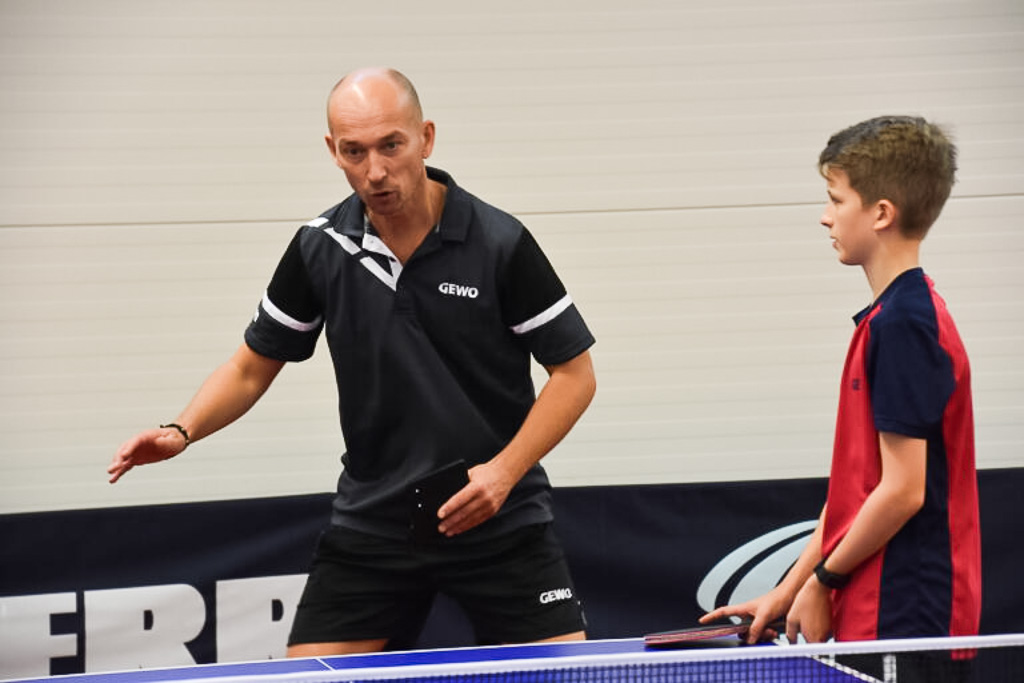
Oliver Alke: “…you can’t just focus on what’s happening at the table and the physical characteristics, but you also have to understand the age-dependent emotional behaviour and social needs.” Photos: Jens Fellke
Individual approach
What did you learn from the long process with Lleyton that you can now apply to Eddie?
“That it is very important to have a very individual approach for each talent. And you need a complete picture of the child, which means you can’t just focus on the table tennis specifics and the physical characteristics, but you also need to understand the age related emotional behaviour and social needs.
One player tries to do everything by the textbook, the other is more revolutionary and wants to test the limits. The challenge as a coach is to take all this into account in the learning process, so that the player gradually learns both with his body and with his head what is necessary to make training efficient and goal oriented. This ensures that they can also be successful in competitions later.
I have changed my opinion regarding training volumes. I’m now more in favour of training with high concentration and intensity rather than just counting the hours. Quality over quantity.”
However, Alke still maintains an emphasis on the basics like a good foundation of technique, combined with solid footwork. On top of that are individual solutions for things like serve, return and the balls after that.
“It’s always about the perfect balance between the things everyone needs to learn thoroughly and the players’ individual ways to overcome all the other challenges.”
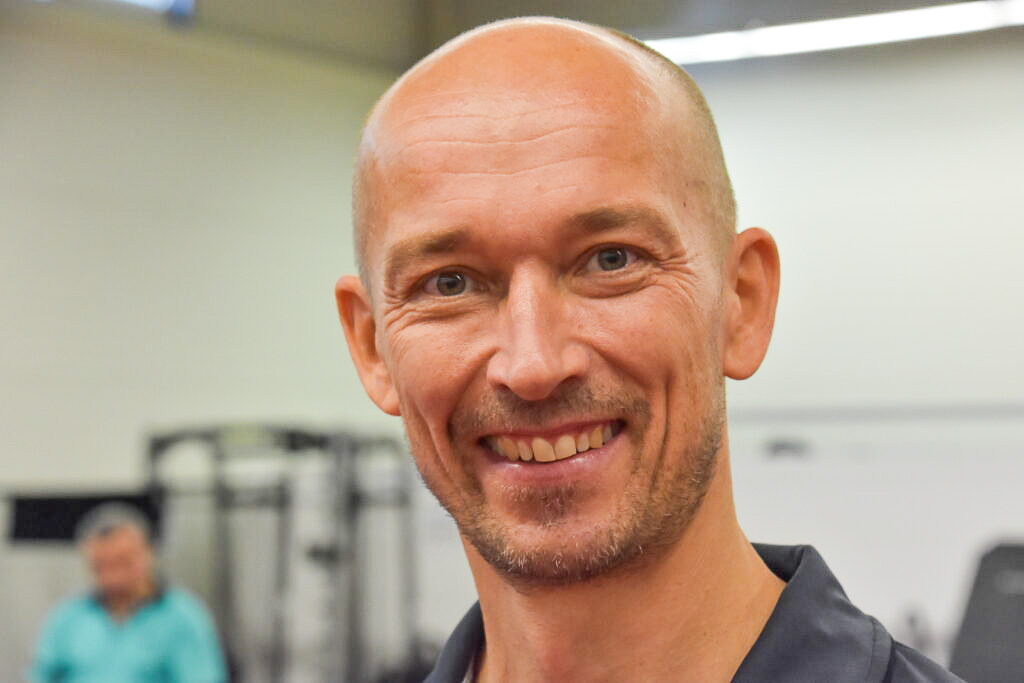
none
Oliver Alke. Photo: Jens Fellke
I’m a hungry guy who wants to win titles. I want to maximise my potential. Let’s see how that translates into results. Anyway, when I stop one day, I’ll know that I did everything I could to become as good as I became.
Benedikt Duda
Oliver Alke: Discovering young talent early
Oliver Alke: Discovering young talent early
Portrait of Oliver Alke, a coach for the compass Foundation, who is working with young talents like Lleyton Ullmann and Eduard Kardon and believes in early support and tailored training.

none
Oliver Alke and Lleyton Ullmann at the table. Photo: Jens Fellke
Since 01.01.2019, Oliver ‘Olli’ Alke has been working as a full-time coach for the compass Foundation. After helping Lleyton Ullmann to the 1st place in his age group and even to the top 3 of the one year older age group in Germany, a very young talent named Eduard Kardon from Schleswig-Holstein, born in 2014, caught his attention.
“I got in touch with the compass Foundation following their interest in Lleyton, with whom I had been working closely for several years at that point,” says Olli over the phone from Hamburg. “I liked the concept of compass, their wanting to discover young talents for early support, to give them the opportunity to maximise their potential with targeted training. The idea that additional initiatives by a foundation, in collaboration with existing organisations and environments of talent, could be a way to develop a future world class player was compelling. So, when I got the offer to contribute, my gut told me that I really wanted to do this full time.”

none
Lleyton Ullmann (in red) warming up during a week of training in Ochsenhausen between two other compass players, Kevin Fu (3rd from right) and David Björkryd (far right). Photo: Jens Fellke
First protégé moves
Alke’s first protégé, team compass player Lleyton Ullmann, recently left Hamburg to live and train at the German Table Tennis Center (DTTZ) in Düsseldorf. Lleyton goes home every other weekend to see his family and of course, Olli will do training sessions with him then. He will also remain Lleyton’s personal coach, visiting him regularly in Düsseldorf and coaching him at competitions. However, their daily training together is over. From now on, what happens in Düsseldorf will have a greater impact on Lleyton’s development than what happens in Hamburg.
“It’s the perfect time for Lleyton to go to Düsseldorf. He is now 14 years old and has to invest more time in school, which would have negatively affected his training volumes if he had stayed in Hamburg. His playing level is now so high that it is also becoming more and more difficult to constantly find adequate training partners for him here in Hamburg. The other members of the training group here don’t have matching high and professional goals either, which would not contribute to his motivation in a positive way.”
Group dynamics
In Düsseldorf, schoolwork has little impact on his training scopes as Lleyton lives literally 50 metres from the hall and can train whenever he wants. He’s surrounded by players of different ages and at different stages of their careers, but all of them are striving to be No. 1. Becoming part of such a group dynamic with many good players will be highly beneficial for Lleyton’s development.
Win-win
Before Lleyton’s move, working with him was a huge part of Oliver Alke’s daily agenda. Now there is more time for the new and young talents. The youngest of them is Eduard ‘Eddie’ Kardon, born in 2014.
Eddie is a perfect example of where compass can be helpful in developing promising talent. If the external conditions are right and the parents agree, compass can offer them more high quality training and games than the club or state coaches, because their profession is to help a child’s progress. They can focus on individual, very young players who are almost beginners. “In the end it’s a win-win situation – the national association gets a better and more competitive player, as well as the youth national team and hopefully at some point the men’s national team,” says Olli.

none
Eduard ‘Eddie’ Kardon
“The tip-off came from Mirsad Fazlic, the state coach of Schleswig-Holstein. Eddie was the ‘little brother’ sitting on the bench watching his big sister at the base training and his interest in playing table tennis was noticed by Mirsad. For him, it was clear that Eddie could only get individual training because as an almost beginner he was much worse than all the others in the base so Mirsad organised this for Eddie. That’s how I came for a few test sessions and realised, as did Mirsad, that Eddie had something special and we should take care of him more intensively, despite or even because of his young age.”
Initially, Olli also played with Eddie one time per week but since a few months it has become four times per week after consultation with Mirsad, only possible because the two live not far from each other, much closer than Mirsad.
“There were many things I still had to learn in the beginning,” Olli continued. “How long could I do a training session with him? How do I keep fun in the game? How do I compensate in those Covid times for the fact that no other kids can be in the gym? How much fun games versus ‘serious’ training can I do? Now, I make sure to adapt to his mood and adjust each training session in order to get the best out of it. And he is very fun to play with!
Eddie, because he is at the optimal age for learning movement, is naturally developing quickly. He is very brave, has self-confidence and is extroverted. He doesn’t take all my advice directly, as he is able to think on his feet. Sometimes he says things like, “no, no, I can do it differently, watch…” He’s left-handed and has a pretty hard forehand now at 6 years old.”


Oliver Alke: “…you can’t just focus on what’s happening at the table and the physical characteristics, but you also have to understand the age-dependent emotional behaviour and social needs.” Photos: Jens Fellke
Individual approach
What did you learn from the long process with Lleyton that you can now apply to Eddie?
“That it is very important to have a very individual approach for each talent. And you need a complete picture of the child, which means you can’t just focus on the table tennis specifics and the physical characteristics, but you also need to understand the age related emotional behaviour and social needs.
One player tries to do everything by the textbook, the other is more revolutionary and wants to test the limits. The challenge as a coach is to take all this into account in the learning process, so that the player gradually learns both with his body and with his head what is necessary to make training efficient and goal oriented. This ensures that they can also be successful in competitions later.
I have changed my opinion regarding training volumes. I’m now more in favour of training with high concentration and intensity rather than just counting the hours. Quality over quantity.”
However, Alke still maintains an emphasis on the basics like a good foundation of technique, combined with solid footwork. On top of that are individual solutions for things like serve, return and the balls after that.
“It’s always about the perfect balance between the things everyone needs to learn thoroughly and the players’ individual ways to overcome all the other challenges.”

none
Oliver Alke. Photo: Jens Fellke

